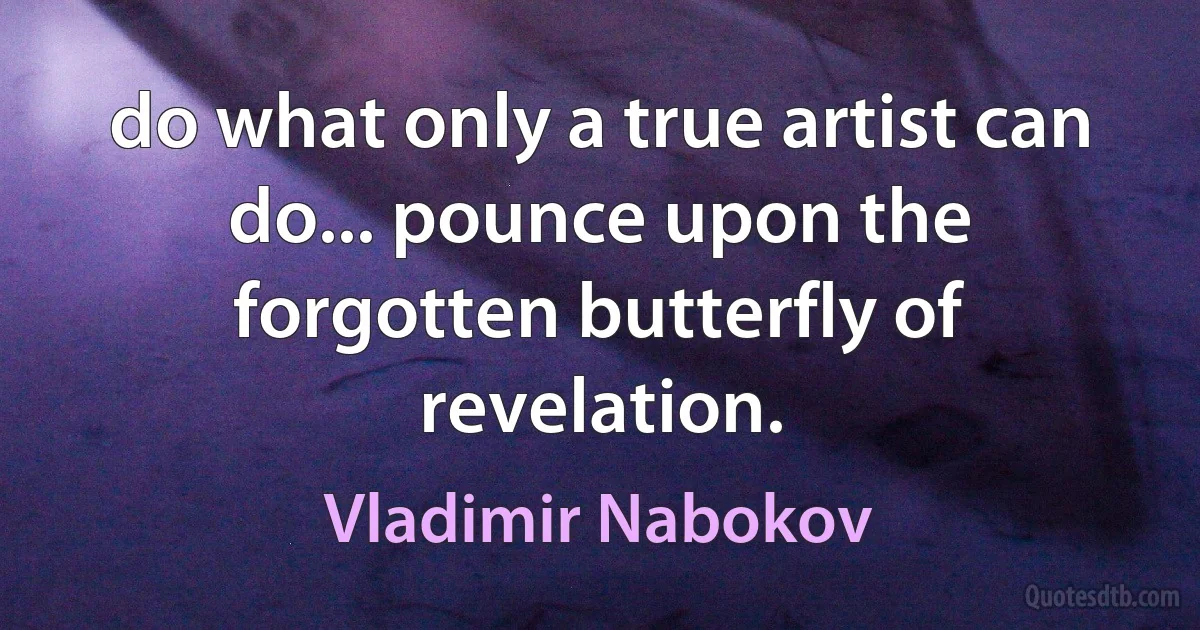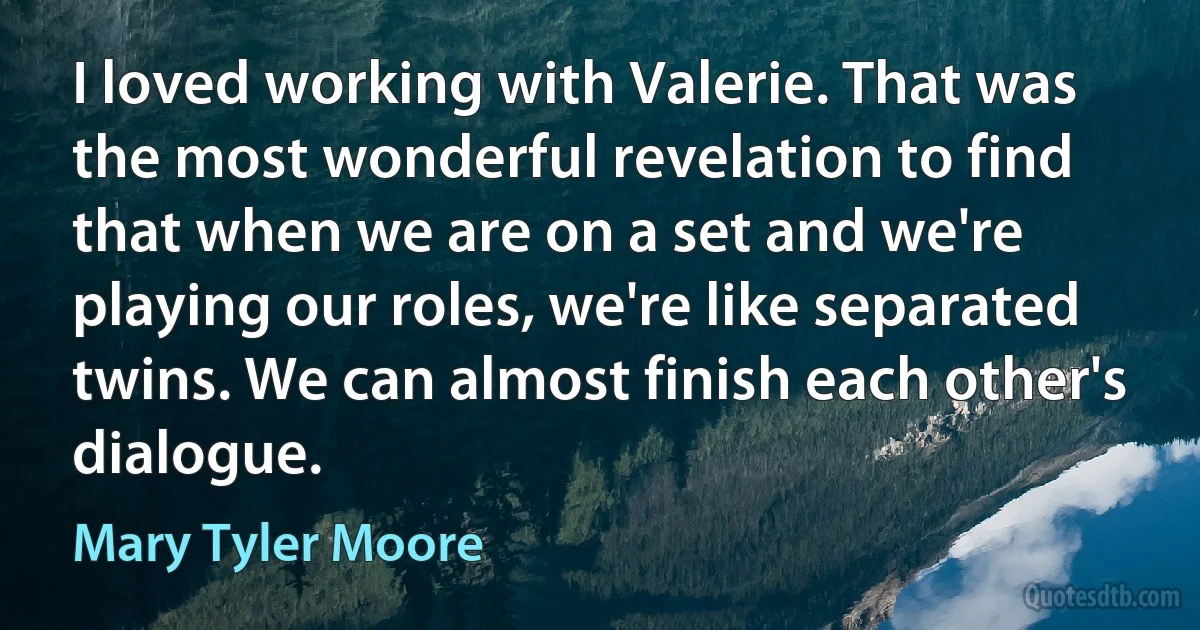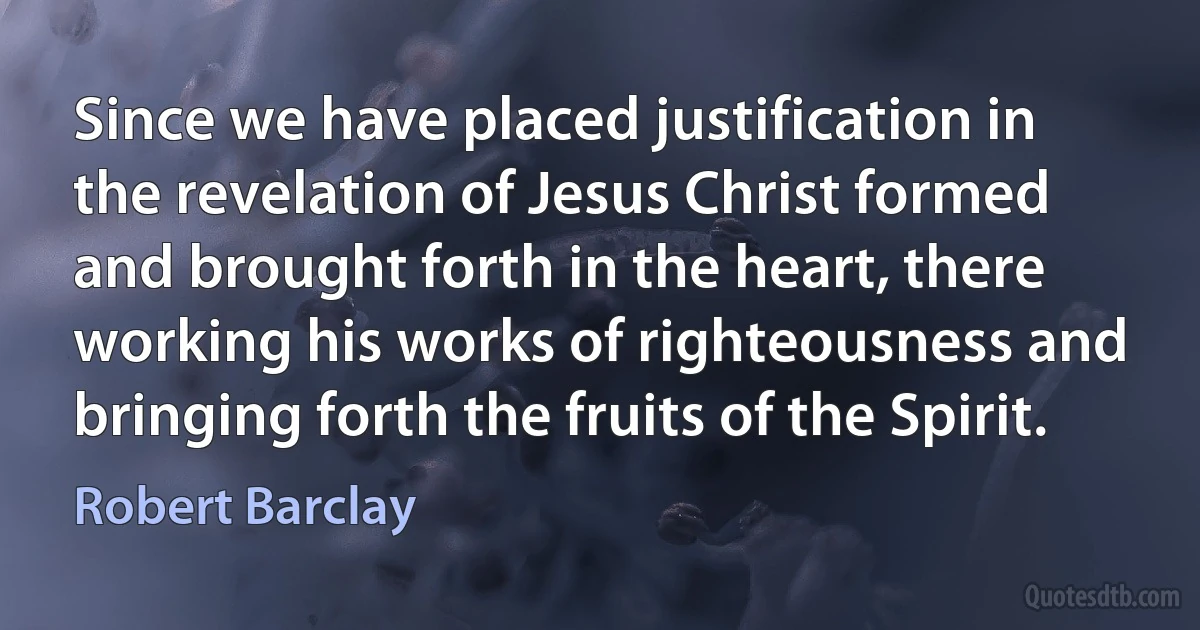Revelation Quotes - page 8
What is the meaning of life? That was all - a simple question; one that tended to close in on one with years. The great revelation had never come. The great revelation perhaps never did come. Instead there were little daily miracles, illuminations, matches struck unexpectedly in the dark; here was one. This, that, and the other.

Virginia Woolf
The major religions on the Earth contradict each other left and right. You can't all be correct. And what if all of you are wrong? It's a possibility, you know. You must care about the truth, right? Well, the way to winnow through all the differing contentions is to be skeptical. I'm not any more skeptical about your religious beliefs than I am about every new scientific idea I hear about. But in my line of work, they're called hypotheses, not inspiration and not revelation.

Carl Sagan
Now, through my own infirmity I recover what he was to me: my opposite. Being naturally truthful, he did not see the point of these exaggerations, and was borne on by a natural sense of the fitting, was indeed a great master of the art of living so that he seems to have lived long, and to have spread calm round him, indifference one might almost say, certainly to his own advancement, save that he had also great compassion. [...] We have no ceremonies, only private dirges and no conclusions, only violent sensations, each separate. Nothing that has been said meets our case. [...] After a long lifetime, loosely, in a moment of revelation, I may lay hands on it, but now the idea breaks in my hand. Ideas break a thousand times for once that they globe themselves entire. [...] I am yawning. I am glutted with sensations. I am exhausted with the strain and the long, long time - twenty-five minutes, half an hour - that I have held myself alone outside the machine.

Virginia Woolf
No, we don't have faith in reason and science in the same way as "Cru” members have faith in God. I see "faith” according to Walter Kaufmann's definition: strong belief in propositions for which there is insufficient evidence to command the assent of every reasonable person. We have confidence in science because it has led us to provisional truths-it works. Cru doesn't even know if there's any God, or, if there is a divine presence, that it's the Abrahamic god rather than the Hindu god, Yahweh, or Wotan. And we use reason in the same way: it leads us to truth. Revelation, dogma, and authority do not, for if they did there would be only one religion rather than thousands with their disparate and often conflicting doctrines.

Jerry Coyne
I am SO tired of this trope. It may indeed be the case that we can't justify a priori via philosophical lucubrations that we arrive at the truth about nature only by using the methods of science. My answer to that is increasingly becoming, "So bloody what?” The use of science is justified because it works, not because we can justify it philosophically. If we are interested in finding out what causes malaria, no amount of appeal to a deity, philosophical rumination, listening to music, reading novels, or waiting for a revelation will answer that question. We have to use scientific methods, which, of course, is how causes of disease are found.

Jerry Coyne
The harm, as I've said repeatedly, comes not from the existence of religion itself, but from its reliance on and glorification of faith-belief, or, if you will, "trust” or "confidence”-without supporting evidence. And faith, as employed in religion (and in most other areas), is a danger to both science and society. The danger to science is in how faith warps the public understanding of science: by arguing, for instance, that science is based just as strongly on faith as is religion; by claiming that revelation or the guidance of ancient books is just as reliable a guide to truth about our universe as are the tools of science; by thinking that an adequate explanation can be based on what is personally appealing rather than on what stands the test of empirical study.

Jerry Coyne
When I was a student in the 1950s, I read Husserl, Sartre, Merleau-Ponty. When you feel an overwhelming influence, you try to open a window. Paradoxically enough, Heidegger is not very difficult for a Frenchman to understand. When every word is an enigma, you are in a not-too-bad position to understand Heidegger. Being and Time is difficult, but the more recent works are clearer. Nietzsche was a revelation to me. I felt that there was someone quite different from what I had been taught. I read him with a great passion and broke with my life, left my job in the asylum, left France: I had the feeling I had been trapped. Through Nietzsche, I had become a stranger to all that.

Michel Foucault
Next time somebody tells you something that sounds important, think to yourself: 'Is this the kind of thing that people probably know because of evidence? Or is it the kind of thing that people only believe because of tradition, authority or revelation?' And, next time somebody tells you that something is true, why not say to them: 'What kind of evidence is there for that?' And if they can't give you a good answer, I hope you'll think very carefully before you believe a word they say.

Richard Dawkins
Another window to the outside opened on the first day of school, when an eager young teacher told the class they could find out anything in the world if they paid attention and learned to read. To Jake it came as a revelation, the missing piece of the puzzle of his life! Here was the secret of existence he had known must be somewhere! All the mysteries of his existence would come clear, all the things he wondered about, if he would only learn to read. He did learn, quickly, passionately, with the ardor many boys reserve for sports.

Sheri S. Tepper
A less important point which needs to be made in this piece is that although the index of The God Delusion notes six references to Deism it provides no definition of the word ‘deism'. This enables Dawkins in his references to Deism to suggest that Deists are a miscellany of believers in this and that. The truth, which Dawkins ought to have learned before this book went to the printers, is that Deists believe in the existence of a God but not the God of any revelation. In fact the first notable public appearance of the notion of Deism was in the American Revolution.

Antony Flew



